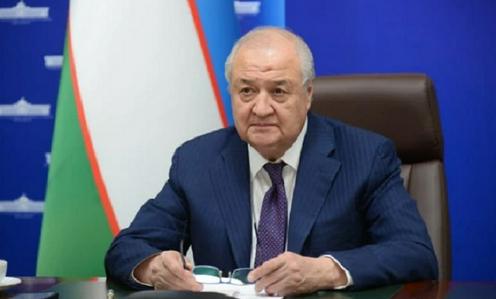Abdulaziz Kamilov, Special Representative of the President of Uzbekistan for Foreign Policy and Deputy Secretary of the Security Council under the head of state, stated that cooperation between Central Asian countries and the European Union would continue “regardless of whether there are certain comments, or whether someone likes it or not.” His remarks, originally given in an interview with Ishonch.uz, were cited by Gazeta.uz.
Kamilov emphasized that, for the first time in history, the Central Asian states are acting as a single entity, presenting a new role that is being acknowledged by the international community. On this basis, he said, new models of engagement are emerging. Currently, there are over ten “Central Asia +” partnership platforms involving leading countries and organizations.
According to the presidential envoy, the recent “Central Asia–EU” summit in Samarkand marked a significant step toward strengthening strategic cooperation—an achievement reflected in the joint declaration adopted at the meeting.
“The policies of the Central Asian countries are highly pragmatic,” Kamilov noted. “Compare: we are five countries, and the EU has 28. The EU’s combined GDP is around $19 trillion. Of course, we have a pragmatic interest. Whether there are any comments or not, whether someone likes it or not, we will continue this partnership,” he concluded.
Kamilov also said that many prominent politicians view Central Asia as a potential model for regional cooperation—an example of how neighboring countries can live according to principles of good-neighborliness and friendship.
The “Central Asia–European Union” summit took place in April in Samarkand, bringing together European Council President António Costa, European Commission President Ursula von der Leyen, and the presidents of Uzbekistan (Shavkat Mirziyoyev), Kazakhstan (Kassym-Jomart Tokayev), Kyrgyzstan (Sadyr Japarov), Tajikistan (Emomali Rahmon), and Turkmenistan (Serdar Berdimuhamedov). The summit was held under the slogan “Investing in the Future.”
A 20-point joint declaration was adopted at the event, outlining commitments to strategic partnership between the Central Asian states and the EU, along with a list of specific initiatives and projects.
At the end of April, during a visit to Uzbekistan, Russian Foreign Minister Sergey Lavrov criticized the EU’s engagement with Central Asian countries. According to Lavrov, the EU was promoting “its own agenda with a pronounced anti-Russian bias” in the region.
He added that while Russia has no objection to its allies and strategic partners pursuing multi-vector foreign policies, some—primarily Western actors—prioritize their own interests over mutually beneficial projects. Lavrov also alleged that EU-funded programs target penetration into government institutions in areas such as border security, statistics, and customs administration.










